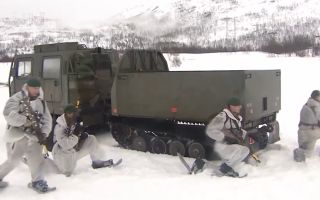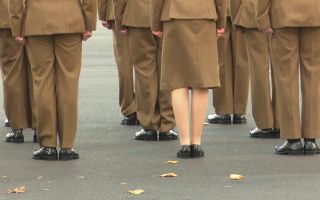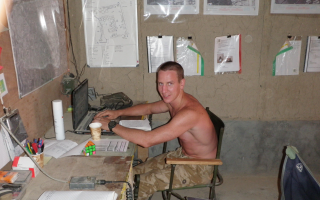What is being done to fix problems with military accommodation?
Steps are being taken to rectify the problems with military accommodation, but it will still be a long time before some service families see any improvements, Forces News has learned.
Forces News spoke to the man responsible for managing services' housing, Phil Riley, who said problems persist – but action is being taken.
Mr Riley, the director of accommodation at the Defence Infrastructure Organisation (DIO), said the performance of Amey and VIVO, the companies that carry out repairs and maintenance, was improving.
However, he said he was concerned that these improvements were "not yet being experienced by service families everywhere".
Why is there so much dissatisfaction with military accommodation?
Phil Riley: "One of the big problems is that we inherited an estate that was built a long time ago.
"Some of it was built very quickly post-war, for very good reasons, and we probably haven't invested in the infrastructure as much as we should have done over many decades.
"We are trying to play catch-up now. My budget this year is over £700m for spending on the estate, but with years and years of fix and fail, it's going to take a long time to catch up and provide the really high-quality homes that service families deserve."
How are you holding to account the companies with contracts to repair service families' homes?
Phil Riley: "When we launched the new contracts last April, I think it's fair to say we didn't get it right and I am happy to apologise yet again to service families who have had poor service.
"We recognise that not just through social media, but we go out and about. I try and get out at least once a fortnight, more often to visit housing estates to meet serving personnel.
"And the stories they tell me are terrible at times, at the service they've received at the start of the contract.
"We put rectification plans in, so both Amey and VIVO have to go under a very steep upward curve on delivery.
"We meet with them every month at a chief executive level, we meet at a lower level almost every day and we're driving for improvement.
"But I think it will still take some time before that's felt everywhere across the country, there are patches where it is difficult.
"The overall performance of Amey and VIVO at a top level is improving, but my fear is that's not yet being experienced by service families everywhere.
"When I go out and about, I am still seeing some of the problems that you've seen on social media and that we hear about – and that's unacceptable."
What action has been taken to prevent the damp and mould issues seen last year?
Military families in January told Forces News about their concerns over black mould in their service accommodation and the effects they believe it is having on their children's health.
Phil Riley: "We recognise again that we didn't move fast enough on this last year.
"Five thousand homes were affected by damp or mould and that simply wasn't satisfactory.
"We've created a task force, everyone who has reported damp or mould problem has now has had a visit from a first responder.
"We've assessed the level of damp or mould. We've put an immediate £25m into rectification work.
"Things like new windows, better ventilation, better insulation and a further £94m going into longer-term projects, external or insulation, new roofing to try and prevent it reoccurring."
What's your message to personnel concerned they will be worse off under the new needs-based allocation of family accommodation?
Phil Riley: "If there is a reduction in transition arrangements as a result of the new offer, there is transition protection for a number of years.
"So there is a three-year transition period where their rights will be protected.
"We are trying to be flexible on this, and realising that a one-size solution doesn't meet the needs of every family and some people have some concerns we are trying to meet."









